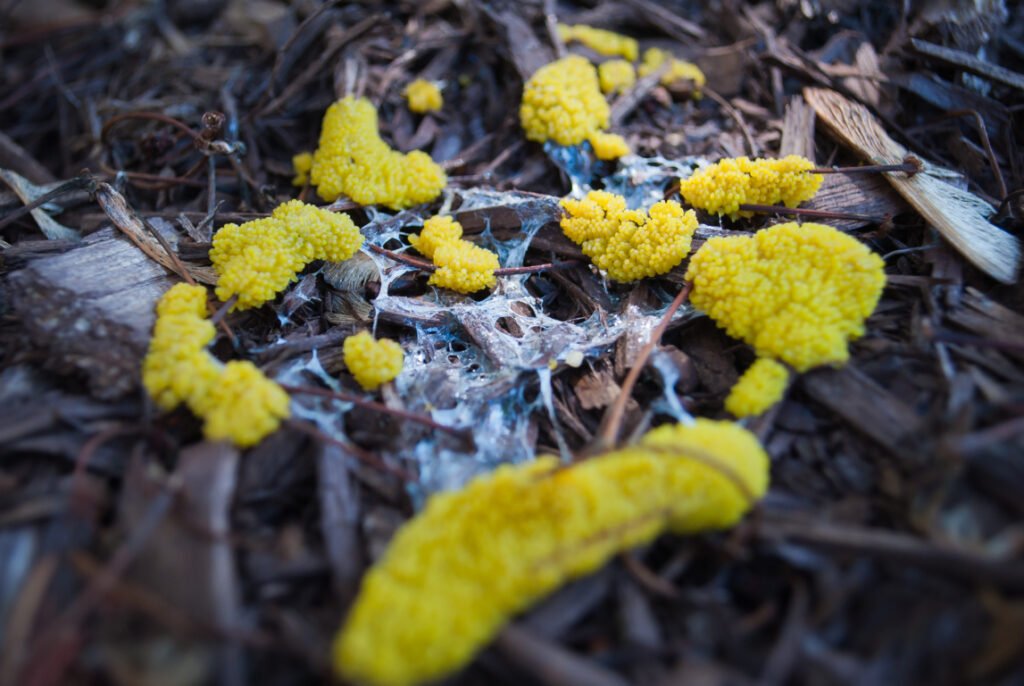
As a seasoned gardener, I have long been an advocate for the use of worm castings in my garden. I was impressed by the growth and healthier foliage I saw on my plants. However, as much as I am a fan of vermicomposting (another term for worm castings), I recently came face-to-face with some unexpected disadvantages of worm castings.
I ditched my traditional compost and invested in a vermicomposting setup. Initially, I was delighted with the results, but my excitement diminished over time.
My curiosity grew as I noticed more weed growth and my harvests were slower than normal. How could something that was expected to maximize the output of my garden be creating such problems?
Driven to discover the answers, I began my journey of exploring worm castings. After talking with other gardeners, reading books and articles, and connecting with vermicomposting experts – what I learned was surprising.
In this article, I will be sharing my personal experience and the findings of my research on the disadvantages of worm castings. I will uncover the underlying issues causing weeds to spread and harvests to decline that I experienced firsthand.
Moreover, I am passionate about providing you with an insightful look at the downside of vermicomposting. So, join me on this journey as we explore a side of worm castings rarely discussed. So, let’s begin:
What is a Worm Casting?

A worm casting is a nutrient-rich soil amendment crafted by earthworms, bursting with bacteria, fungi and other microorganisms essential to plant growth. Earthworms consume organic matter which then breaks down into the vermicompost or signature “worm castings.” This abundant compost can provide a bounty of nourishment for your plants!
However, it’s not all sunshine with worm castings – they come with plenty of disadvantages too. Some of these disadvantages can be deadly and can even destroy your plants. Let’s find out what they are:
What are the Disadvantages of Worm Composting?

If we compare the disadvantages of worm composting against the benefits, the disadvantages outweigh the benefits in most cases. Some of the common disadvantages of worm composting are:
1. Increased weed growth:
One of the most frustrating experiences for any gardener is to see their garden overrun with weeds. I nearly panicked when I noticed that my luscious evergreen garden had become overrun by weeds, all thanks to the nutrient-rich worm castings. Unfortunately, they had become a welcoming habitat for weeds to take root.
Solution:
If you wish to prevent this problem, make sure that your soil is aerated and clear of weeds before adding vermicompost. This can be done by using organic mulch and other soil aerators. Furthermore, too much vermicompost in one area will only lead to weed growth so use with caution!
2. Slow harvest:
The next challenge I faced was a longer harvesting time. Initially, my hopes were high for a speedy yield, however the vermicomposting method resulted in slower growth of my plants and ultimately delayed harvest.
Solution:
To fight this problem, get vermicompost that is top-notch. Make sure that the worms have access to ample food sources and an optimal space for them to do their job expeditiously. Moreover, use the worm compost sparingly because a high concentration can lead to nutrient overload which will delay the harvest period even more.
3. Expensive setup:
Establishing a worm castings system is no small investment. Acquiring the necessary materials such as vermicomposting bins, bedding and worms can be quite costly for someone like me. Not to mention that feed expenses must also be taken into account – which would have cost me an arm and a leg! It was somewhere between $300-$600 for worm casting per yard.
Solution:
Start your own worm farm. All you need to do is buy red wigglers from a local bait store or online. Once you have the worms, find an old plastic bin and drill small holes in it for aeration and drainage. Fill the bin with bedding materials such as shredded newspaper, coconut coir, or peat moss to provide the worms with a comfortable habitat. Add food scraps such as fruits and vegetables to the bin to keep your worms fed.
With this setup, you can easily harvest your own vermicompost without spending too much money.
4. Invites pests:
Pests and diseases are a gardener’s worst nightmare, and vermicomposting can attract them in droves. The warm and moist environment of a composting bin can act as a breeding ground for these unwanted guests, leading to damage or even the destruction of your precious plants.
Solution:
To keep pesky pests at bay, it is vital to maintain the ideal temperature and moisture of your vermicompost bin. Regularly use a thermometer to monitor the internal temperatures and add more bedding material when needed in order for them to stay between 55 – 77 Fahrenheit. This way you can ensure that your composting system remains working properly!
5. Not available in abundance:
Despite its many advantages, vermicomposting does have one major downside: scarcity. Since worm castings are composed of the worms’ excrement, their availability and quantity is limited by the number of worms you own. Therefore, if you want to use these powerful fertilizers in your garden projects then you’ll need to either increase your population or find a dependable source for purchasing it insteads.
Solution:
You can do two things to overcome this issue. Plant the castings early in the season and breed earthworms. To create the perfect environment for your earthworms, find a container with appropriate drainage and fill it to the brim with organic matter.
Make sure that you make the bedding deep enough so that your worms remain moist and cool. If conditions seem arid or dry, sprinkle some water over their home occasionally. Finally, offer them food such as aged fruits and vegetables in order to encourage breeding growth!
6. Difficulty during harvesting:
Lastly, extracting worm castings can be an arduous activity. Worms have a key part to play in the composting process and must not be disturbed during this procedure. If they are, you’ll end up with a pile of materials that failed to decompose rather than nutrient-rich fertilization for gardens.
Solution:
Create a simple sifting system to easily harvest vermicompost. Start by constructing a wooden frame, then attach some mesh or screening material over it. Put the bin filled with compost in front of the frame and begin scooping out small portions at once, followed by lightly tapping on its bottom for everything to drop through the mesh effortlessly!
Afterward, you can use a rake or shovel to gather the compost from underneath and easily separate it from any undecomposed materials or worms still in it. This method will help you harvest your worm castings with minimal disturbance to the worms and their habitat.
What Happens When You Use Too Much Worm Castings in Your Garden?

Be mindful that too much of a helpful thing can easily become harmful. That’s applicable to worm castings as well, which are an excellent natural fertilizer for plants; nevertheless, overuse could have substantial adverse impacts. Here is a look at some of the negative effects that may occur with excessive use of worm casts:
1. Over-fertilization:
Over-fertilization can be an issue when using too much worm castings, as they are jam-packed with nutrients. This abundance of nitrogen, phosphorus, and potassium may cause stunted growth in your plants and leave them yellowing or wilting—not a good sign! It’s important to use the correct amount of fertilizer so that you don’t end up overdoing it.
2. Alkaline soil:
When using too much worm castings, the soil can become alkaline. This excessively high pH level harms your plants and could result in nutrient deficiencies as well as stunted growth. It is important to use only a moderate amount of worm castings for optimal results.
3. Soil compaction:
Worm castings can compress the soil and decrease its aeration when used in abundance. This might prevent water and air from reaching to your plants’ roots, causing stunted growth or even death. Keeping this in mind, it’s important to use these castings wisely for optimal health of your plants!
4. Pest and disease attraction:
Too many worm castings can lead to a perilous environment for plants, as the moist and warm conditions created by them are perfect havens for pests and diseases that could cause severe destruction.
While worm castings are a great natural fertilizer for your plants, using too much of it can lead to serious problems. Therefore, it’s crucial to be mindful of the amount of worm castings you use in your garden and to use them in moderation.
Should You Grow Plants in 100% Worm Castings?
Can plants be grown in 100% worm castings? Yes! But, it’s important to keep in mind that it is not the optimal environment for plants. Although worm castings are a great soil amendment, and can be used as part of an overall soil mix, they should not be used entirely on their own.
The reason being is that worm castings alone do not provide enough nutrients or aeration for optimal plant growth. Worm castings are very high in nitrogen, and while this is great for giving plants a boost of energy, too much can be toxic to them. Furthermore, worm castings tend to hold onto water for long periods of time and can suffocate the roots of plants.
Therefore, it’s essential to blend worm castings with other soil components like compost or potting mix. This will create a balanced nutrient level and ensure excellent aeration for your plants. In this way, you can give them the benefit of the high nitrogen content in worm castings while still providing all the other necessary elements they need to thrive.
Can You Plant Directly Into Worm Castings?
Worm castings have all the organic goodness and nutrient content to make them perfect for soil fertilization. Yet, it’s not advised to plant directly into worm castings since they are dense and may end up being over-rich in nutrients that can cause an imbalance of minerals within the soil which could lead to damaging your plants.
Worm castings should be mixed with soil before planting to create a balanced blend of organic matter and nutrients. The worm castings will act as a slow-release fertilizer and provide an organic boost to your garden soil.
For the best results, mix worm castings in your soil gradually. If you add too much at once, it can cause nutrient burn due to excessive concentration in one area of the garden. An even distribution will ensure that all plants get a consistent dose of minerals and nutrients!
Furthermore, make sure to blend the worm castings into the soil at least fourteen days before planting. This gives them time to decompose and evenly distribute its nutrients while permitting beneficial microbes that foster plant growth to settle in your garden bed.



